People
Boulder physics professor receives Presidential Early Career Award
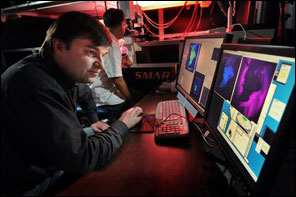
Photo by Glenn J. Asakawa/University of Colorado
|
| Smalyukh |
University of Colorado at Boulder faculty member Ivan Smalyukh is one of 100 men and women in the United States to be awarded a coveted 2010 Presidential Early Career Award for Scientists and Engineers, or PECASE.
The PECASE awards are the highest honor bestowed by the U.S. government on outstanding scientists and engineers in the early stages of their independent careers. President Barack Obama announced the awards Nov. 5. The award includes $600,000 of funding from the National Science Foundation over five years.
Smalyukh, an assistant professor in CU-Boulder's physics department and a member of the university's Liquid Crystals Materials Research Center, and his students are studying the organization of nanoparticle and molecular self-assembly related to precisely controlled structures in liquid crystals. The research is expected to help scientists develop new electrically and optically controlled materials that could lead to a number of technological breakthroughs, including more efficient conversion of solar energy into electricity using inexpensive solar cells and the development of flexible display and data storage devices.
"As a scientist and educator, I receive this great honor with deep gratitude," Smalyukh said. "The PECASE award is a strong encouragement for me and for my students. It will help us in achieving many important and ambitious research goals."
Established by President Bill Clinton in 1996, the awards are coordinated by the Office of Science and Technology Policy within the Executive Office of the President. Awardees are selected on two criteria – the pursuit of innovative research at the frontiers of science and technology and a commitment to community service as demonstrated through scientific leadership, public education or community outreach.
Smalyukh also was a winner of the 2009 National Science Foundation's Faculty Early Career Development, or CAREER award, the agency's most prestigious awards to junior faculty members around the nation. The NSF nominated Smalyukh for the 2010 PECASE awards.
He also is a founding fellow of the Renewable and Sustainable Energy Institute, a joint center of CU-Boulder and the U.S. Department of Energy's National Renewable Energy Laboratory.
This year's recipients will be honored at a White House ceremony with Obama in early 2011.
Brown returns to Washington – with students
University of Colorado President Emeritus Hank Brown will lead a University of Colorado at Boulder political science class on a trip to the U.S. Capitol Building in Washington, D.C., on Nov. 11-13.
The trip is part of his Icons of the American Republic class, which introduces students to the founding period of the United States through the events, concepts and individuals depicted in art exhibited in the U.S. Capitol. The 21 CU-Boulder students, along with five students from the University of Colorado at Colorado Springs, will have a rare opportunity to visit the floors of both the U.S. House and U.S. Senate.
This is the third consecutive year Brown has led students on the visit to Washington. The class trip is made possible by financial contributions from external donors.
According to Professor Ken Bickers, chair of the CU-Boulder political science department, "This is a remarkable opportunity for our students. They learn about the American experiment in national self-governance in the heart of the government itself from someone who has been an influential participant in that experiment."
Brown has 30 years of public policy experience as a legislator, congressman, U.S. senator and higher education executive. He served in the U.S. House of Representatives from 1981 to 1991 and in the U.S. Senate from 1991 to 1997.
He retired from the CU-Boulder faculty last year, but continues to teach the Icons of the Republic course through the political science department. He served as president of the University of Colorado from 2005 to 2008. Following his presidency, he was a tenured professor of political science and held the Quigg and Virginia S. Newton Endowed Chair in Leadership at CU-Boulder.
Chemical engineering professor honored
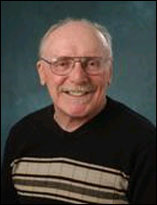 |
| Noble |
Richard D. Noble, the Alfred T. and Betty Look Professor of Chemical Engineering at the University of Colorado at Boulder, received the Institute Award for Excellence in Industrial Gases Technology at the annual meeting of the American Institute of Chemical Engineers in Salt Lake City.
Noble was among 15 other leaders who received awards during the Nov. 7 ceremony.
"The world faces many challenges today, but chemical engineers, as demonstrated by these exceptional award winners, have the innovative spirit and skills to solve them," said Henry T. "Hank" Kohlbrand, president of the institute. "The accomplishments of these engineers – and the work of our thousands of members worldwide – are paving the way for a better future."
Noble has been a professor at CU-Boulder since 1981.
Air Force grant goes to engineering professor
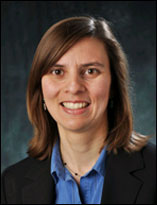 |
| Gopinath |
Juliet T. Gopinath, an assistant professor of electrical, computer, and energy engineering has won an Air Force Office of Scientific Research (AFOSR) Young Investigator Program Award.
She was among 43 scientists and engineers at research institutions across the United States who will receive $16.5 million in grants. Her winning proposal deals with the phase and frequency control of laser arrays for pulse synthesis.
The objective of this program is to foster creative basic research in science and engineering, enhance early career development of outstanding young investigators, and increase opportunities for the young investigators to recognize the Air Force mission and the related challenges in science and engineering.
According to AFOSR officials, competition for the YIP award is intense. This year, the office received 242 proposals in response to the AFOSR broad agency announcement solicitation in major areas of interest to the Air Force. The areas of interest include: aerospace, chemical and material sciences; physics and electronics; and mathematics, information and life sciences. AFOSR officials select proposals based on the evaluation criteria listed in the broad agency announcement. Those selected will receive the grants over a three- to five-year period.
Nobel winner receives honorary degree in Scotland
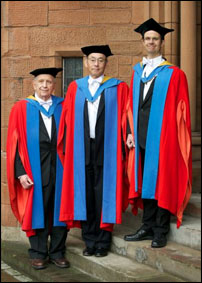 |
| Cornell (right) |
Three winners of the Nobel Prize in Physics – including University of Colorado at Boulder Professor Eric Cornell – have received honorary Doctorate of Science degrees from the University of Strathclyde in Glasgow, Scotland.
Besides Cornell, who jointly won the Nobel Prize in 2001, Strathclyde honored Steven Chu, Ph.D., who was joint Nobel laureate in 1997 and who was appointed to President Obama's administration as U.S. Secretary of Energy in 2009, and Harvard University Professor Roy Glauber, who was joint Nobel Laureate in 2005.
During their visit to Glasgow, all three spoke at a national celebration of the 50th anniversary of the laser, an event held in the city and organized by Strathclyde to highlight Scotland's role in the expansion of the industry since the first laser demonstration in 1960.
Strathclyde Principal Professor Jim McDonald said: "It is an immense honor for us to be welcoming some of the world's most distinguished and eminent scientists to Strathclyde. Their discoveries have opened up many new possibilities in physics and in applications which can help tackle the major challenges of the 21st century."
Cornell was a joint winner of the 2001 Nobel Prize for his study of condensation and condensate materials. He studied at Stanford University in California and at the Massachusetts Institute of Technology before joining the University of Colorado in 1992. He also is a physicist at the U.S. Department of Commerce National Institute of Standards and Technology.
Professor's $100,000 grant will bolster brain research
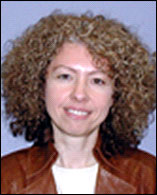 |
| Kutateladze |
Tatiana Kutateladze received a $100,000 grant to study the role of epigenetic regulation by Human CREB binding protein (CBP) in psychiatric disorders. She is one of 42 researchers awarded a NARSAD (The Brain and Behavior Research Fund) 2010 Independent Investigator grant for brain research.
Kutateladze, an associate professor in molecular biology at the University of Colorado School of Medicine, will study the cAMP response element-binding (CREB) binding protein and the role its deficiency plays in alcohol and drug addiction, depression and the Rubenstein-Taybi Syndrome, which leads to severe mental retardation. She will complete biochemical and molecular characterization of CREB, which is essential for learning, long-term and emotional memory and for neuronal plasticity – the ability of neurons to change or make new connections with other neurons.
Kutateladze expects the research to pave the way for the identification of new pharmacological targets and more effective strategies for the prevention and treatment of alcohol and drug addiction and depression.
Dropping names ...
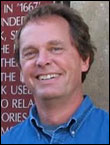 |
| Johnston |
The Archives of Surgery includes a recent article by Philip Stahel, M.D., associate professor in orthopedics who practices at Denver Health. The article reviews cases in Colorado and found that, despite precautions, doctors still perform surgery on the wrong patient or in the wrong place. ... Mark Johnston, Ph.D., chair of the department of biochemistry and molecular genetics at the School of Medicine, is the co-author of a new book, "Genetic Twists of Fate." Dean Richard Krugman noted in his weekly message, "I read it last weekend while I was traveling...The book explains in everyday terms what our DNA code is and how it can affect our lives." Learn more on the University of Colorado Cancer Center blog.
Want to suggest a colleague — or yourself — for People? Please e-mail information to Jay.Dedrick@cu.edu

|